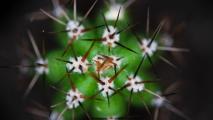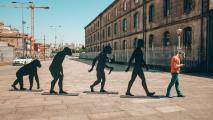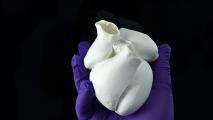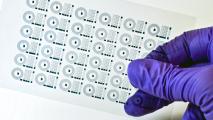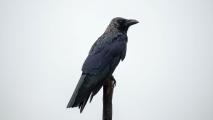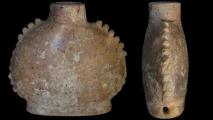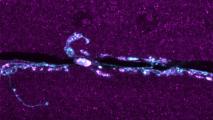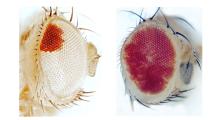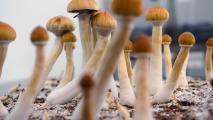
Biotech
Human history has been all but defined by death and disease, plague and pandemic. Advancements in 20th century medicine changed all of that. Now advancements in 21st century medicine promise to go even further. Could we bring about an end to disease? Reverse aging? Give hearing to the deaf and sight to the blind? The answer may be yes. And soon.
More
Your genes may impact psychedelic experiences
UNC researchers have found evidence that the genetic makeup of a crucial receptor may impact your psychedelic experience.
MIT’s new ultrasound sticker lets you see inside your body
MIT researchers have created an ultrasound sticker that can continuously monitor a person’s organs and tissues for up to 48 hours.
How will humans change in the next 10,000 years?
If humans don’t die out in a climate apocalypse or asteroid impact in the next 10,000 years, are we likely to evolve further?
What your weed label really means
Through the largest analysis of commercial cannabis flower yet, Colorado researchers have found that the current labeling system falls short.
This smart mattress will help you fall asleep fast
UT Austin engineers have developed a smart mattress that manipulates a person’s body temperature to help them fall asleep fast.
The 5-hour rule: How to turn a wasted day into a successful one
The 5-hour rule asks us to devote at least one hour a day to learning, experimenting, and reflecting. Here’s how to make it work for you.
Widom of Daoism: why Yin-Yang is so much more than a tattoo
Yin-Yang symbolizes not a conflict or struggle but shows that nothing in life is solely either this or that.
Harvard scientists closer to solving centuries-old heart mystery
Harvard researchers have used a new method to crack the heart’s weird spiral muscle.
MIT engineers 3D-print rubbery brain implants that don’t “stab” the brain
How do you engineer an implant that doesn’t harm an organ as soft as tofu? MIT engineers 3D-printed new soft brain implants.
Nurturing dads raise emotionally intelligent kids
Nurturing dads raise more emotionally intelligent children, helping make society more respectful and equitable.
VR exposure therapy app lets you face phobias on your own terms
Exposure therapy is a reliable technique for overcoming irrational fears, but it currently suffers high patient dropout rates.
The Four Enemies to a happy life and how to defeat them
Buddhist psychologists, Robert Thurman and Sharon Salzberg, have identified “Four Enemies” that are obstacles to a happy, fulfilled life.
How child mortality fell from 40% to 3.7% in 200 years
The collapse in child mortality rates is a testament to the tremendous benefits of scientific, technological, and economic progress.
Crows are self-aware just like us, says new study
Crows and the rest of the corvid family keep turning out to be smarter and smarter. A corvid’s pallium has more neurons than a great ape’s.
Large study of 20,000 cats and dogs could help pets live longer
Mars Petcare has announced the opening of a massive biobank to study aging and pet diseases.
The sci-fi plan to create artificial gravity on the moon, Mars
To create artificial gravity for off-world explorers, Japan plans to build spinning, cone-shaped facilities on the moon and Mars.
Archaeologists identify contents of ancient Mayan drug containers
Archaeologists used new methods to identify contents of Mayan drug containers, discovering a non-tobacco plant.
Potential cause of unexplained epilepsy cases uncovered
University of Arizona researchers have uncovered a protein that might be behind some epilepsy cases with currently unknown causes.
“Soft CRISPR” is safer and could help cure more diseases
A new CRISPR system was far more effective and precise than CRISPR-Cas9 when tested in fruit flies.
The first FDA-approved clinical trial of psilocin has begun
“This has never been done before,” says Filament’s CEO.
Get inspired with the most innovative stories shaping the world around us.













